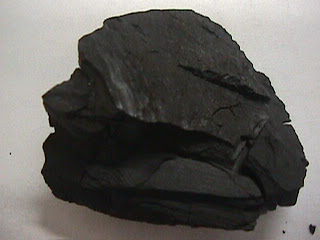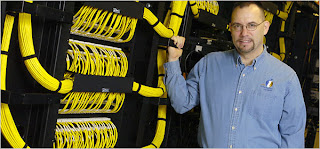 Paul Murphy hit on a few points here that touched off a fuse. In talking about the proverbial Joe mid-level IT manager, Paul hits the nail the on head; it's not that these guys fail to plan, it's that they plan to fail. Calculatingly, deliberately, IT management puts all their effort into screwing things up. As Murphy put it:
Paul Murphy hit on a few points here that touched off a fuse. In talking about the proverbial Joe mid-level IT manager, Paul hits the nail the on head; it's not that these guys fail to plan, it's that they plan to fail. Calculatingly, deliberately, IT management puts all their effort into screwing things up. As Murphy put it:
...we have the quintessential IT bottom line: in IT failure succeeds and success fails.
Joe's career wouldn't be helped by becoming the guy who fixes the phones: that guy's systems work, and nobody knows who he is. What Joe's career needs is bigger budgets, more staff, face time with the bosses - things he gets by being the photocopier guy: that guy's systems fail a lot, but he's known and liked by everyone because he's always there to shoulder the load when crisises hit. In an industry defined by backpackers, the guy with the truck can't be seen - and doesn't get promoted.
Yep. I can't begin to express what this does to corporate IT budgets, with the gross misappropriation of funds and resources on this self-indulgent quest to the top of the pyramid. And most ironic of all is the fact that think they are leaders, moving the company in the right direction. Heads up, Mr. CEO; management optimizes existing processes, and leadership invents new processes. Fact is, your IT people aren't doing either.
This simple fact is why nothing happens when 77 percent of Americans say that their companies aren't doing enough to promote green technologies. I've said before that I think the best strategy is to crunch IT spending to the bone, then use the people freed up by that to get to work on green projects. But that's not going to happen until you separate your IT management from your IT leadership. The IT management optimizes the existing processes, they crunch your 80 percent maintenance costs for IT down to 50 percent. If they don't, you accept resignations. The IT leadership, they invent new processes - solar cells on the roof, telecommuting, wind powered data centers, whatever. If they don't implement the new processes in the given amount of time, you accept resignations. It's about business people, it's about money. And if you can't get your act together, you probably deserve to go 'rupt.
 The EPA is doing a bang up job on the new EnergyStar standard which will include servers as well. A lot of added gains in efficiency need to be attacked at the design and material levels, and IBM and Intel are doing just that with new materials like high-k; sounds like a breakfast cereal. EnergyStar is supporting that work but is also addressing the macro level such as the fact that half to two thirds of your servers' costs are hidden away in power and cooling.
The EPA is doing a bang up job on the new EnergyStar standard which will include servers as well. A lot of added gains in efficiency need to be attacked at the design and material levels, and IBM and Intel are doing just that with new materials like high-k; sounds like a breakfast cereal. EnergyStar is supporting that work but is also addressing the macro level such as the fact that half to two thirds of your servers' costs are hidden away in power and cooling.



































